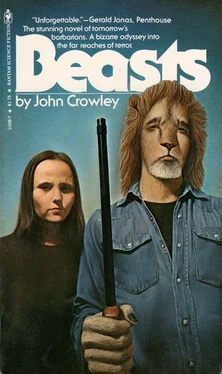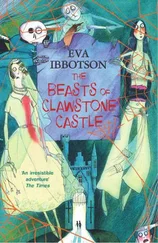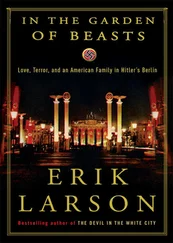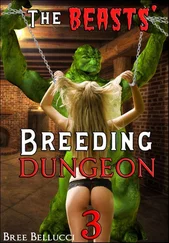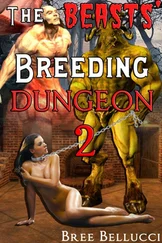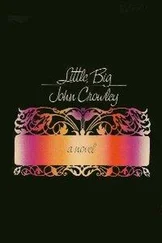“No.”
“Will you come and see the show?”
“I guess.”
He wasn’t able not to look at her, so he tried to do so in a way that seemed other than pleading, though to plead was what he wanted to do; plead what, plead how? She came to him as though he had spoken, and stroked his cheek with the back of her hand.
Meric was so fair, his hair so pale a gold, that his sharp-boned face never grew a beard; his hair ran out along his ears like a woman’s, and if he never shaved, a light down grew above his lip, but that was all. Bree loved that; it seemed so clean. She loved things she thought were clean, though she couldn’t express just what “clean” meant to her. His face was clean. She had depilated herself because she felt herself to be cleaner that way. The softest, cleanest feeling she knew was when he gently, with a little sound like gratitude, or relief, laid his smooth cheek there.
She didn’t want that now, though. She had touched him because he seemed to require it. She felt faintly unclean: which was like but different from feeling apprehensive.
She returned to her testament again, not as though to read it, but as though she wished to question it idly too. He wondered if she listened to Jesus’s answers with any more attention than she did his.
“Why is it you want to know about them?” he asked. “What is it they make you feel? I mean when you think about them.”
“I wasn’t.”
She perhaps wasn’t. She might have meant nothing by her questions. Sometimes she asked aimless questions about his shows, or about technical matters he dealt with, tape, cameras. Sometimes about the weather. Maybe it was he who kept thinking about them; couldn’t get the thought away from him. Maybe she only reflected an unease that he alone felt.
“‘Beware, watch well,’” Bree read, “‘for thine enemy like a roaring lion walketh about, seeking whom he may devour.’”
The Birthday Show began this way:
Isidore Candy’s hugely enlarged, kindly face, or his eyes, rather, filled the screens. The face moved away, so that his hat and great beard came into view. There was a rising note of music, a single note only, that seemed to proceed outward as the face retreated into full view. Through some art, the whole image was charged and expectant. A woman’s voice, deep, solemn almost, said without hurry:
“There was an old man with a beard
Who said: ‘it is just as I feared.
Two owls and a wren
Three sparrows and a hen
Have all built their nests in my beard.’”
At that moment the single note of music opened fanwise into a breath-snatching harmony, and the image changed: The eagles who had aeries in the craggy, unfinished tops of the Mountain opened their ponderous wings in the dawn and ascended, one crying out its fierce note, their shaggy legs and great talons seeming to grasp air to climb.
It was a moment Meric loved, not only because he was almost certain of its effect, how it would poise the audience, at the show’s beginning, on some edge between wit, surprise, awe, glory, warmth; but also because he remembered the chill dawn when he had hung giddy in the half light amid the beams, clutching his camera with numb fingers, waiting for the great living hulks within the stinking white-stained nest to wake and rise; and the joy in which his heart soared with them when they soared, in full light, in full view. He wasn’t so proud of any image he had ever made.
The Birthday Show was all Meric’s work. In a sense it was his only work: shown each year on Candy’s birthday, it was changed each year, sometimes subtly, sometimes in major ways, to reinforce the effects Meric saw — felt, more nearly — come and go in the massed audiences that each year witnessed it. He had a lot of opportunity to check these reactions: even in the huge multiscreen amphitheater it took nearly a month of showings for everyone who lived in the Mountain to see it each year, and nearly everyone wanted to see it.
Bree thought of it as his only work, though she knew well enough that most of his year was taken up with Lraining tapes, and a regular news digest, and propaganda for the outside. Those things were “shows.” This was “your show.” He asked her every year if she thought it was better now, and laughed, pleased, when she told him it was wonderful but she didn’t notice that it was any different. She was his perfect audience.
Meric had acquired, or perhaps had by instinct, a grasp of the power a progress of images had on an audience, of the rhythms of an audience’s perceptions, of what reinforcement — music, voice, optical distortion — would cause a series of random images to combine within an audience’s mind to make complex or stunningly simple metaphors. And he made it all out of the commonest materials: though it was all his work, in another sense very little of it was, because he composed it out of scraps of old footage, discarded tapes, ancient documentaries, photographs, objects — a vocabulary he had slowly and patiently, with all the squirrelly ingenuity that had built Candy’s Mountain itself, hoarded up and tinkered with over the years. The very voice that spoke to the audience, not as though from some pillar of invisibility but as though it were a sudden, powerful motion of the viewer’s own mind, was the voice of Emma Roth, the woman he worked with in Genesis Section: a voice he had first heard speaking wildlife-management statistics into a recorder, a voice that made numbers compelling. A wizard’s voice. And she completely unaware of it.
“Use it up,” Emma’s voice said in every ear, as they watched old tapes of the Mountain being built out of the most heterogeneous materials, “use it up, wear it out, make it do, do without”: said no differently from the way she had said it one day to Meric when he asked about getting fresh optical tape. Yet she said it as though it were a faith to live by: as they did live by it.
Bree surrendered altogether to the mosaic of word and image, as she could surrender, at times, in prayer: in fact the Birthday Show was most like prayer. Some of it frightened her, as when over flaming and degraded industrial landscapes a black manna seemed endlessly to fall, and dogs and pale children seemed to seek, amid blackened streets, exits that were not there, and the sky itself seemed to have turned to stone, stained and eternally filthy, and Emma said in a voice without reproach or hope:
“The streams of Edom will be turned into pitch, and her soil into brimstone; her land shall become burning pitch. Night and day it shall not be quenched; its smoke shall go up forever. From generation to generation it shall lie waste; none shall pass through it for ever and ever. They shall name it No Kingdom There; and its princes shall be nothing.”
For ever and ever! No, it could not be borne; Bree covered her mouth with her hands, hands ready to cover her eyes if she couldn’t bear the scenes of war that followed: blackened, despairing faces, refugees, detention centers, the hopeless round of despair for ever and ever… Only by stages was it redeemed; amaryllis in flower, cocoon opening, a butterfly’s panting wings taking shape. Genesis Preserve: a thousand square miles stolen from Edom. Day rose over it, passed from it. She saw its fastnesses. Rapt, she let her hands slowly come to rest again. Emma spoke the words of an ancient treaty the Federal had made with the Indians, giving them the forests and plains and rivers in perpetuity, fine rolling promises; governments had made the same promises to the people of Candy’s Mountain, and so there was warning as well as security in Emma’s words. Then far off, seen from the unpeopled fastnesses of the Preserve, blue and shadowy as a mountain, remote, as though watched by deer and foxes, their home. Emma said again: “None shall pass through it for ever and ever; they shall name it No Kingdom There, and its princes shall be nothing,” and Bree didn’t know whether the change of meaning, which she understood in ways she couldn’t express, made her want to laugh or cry.
Читать дальше
